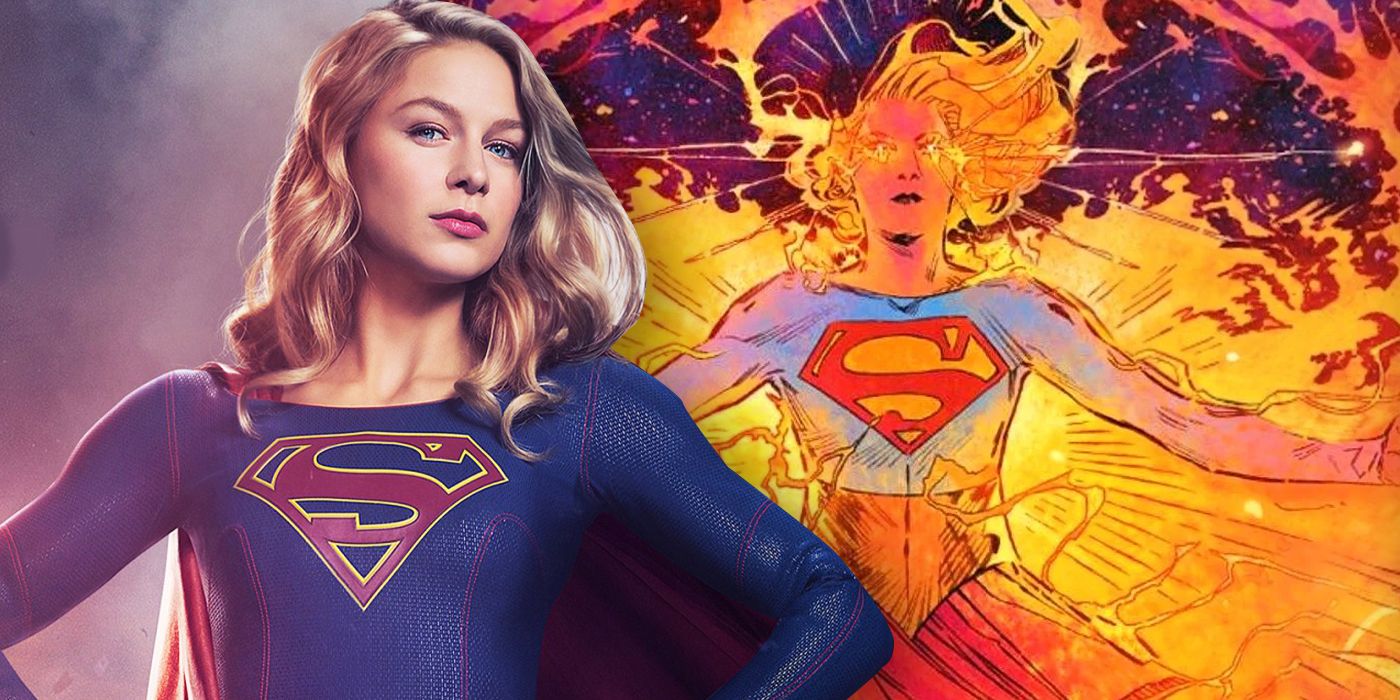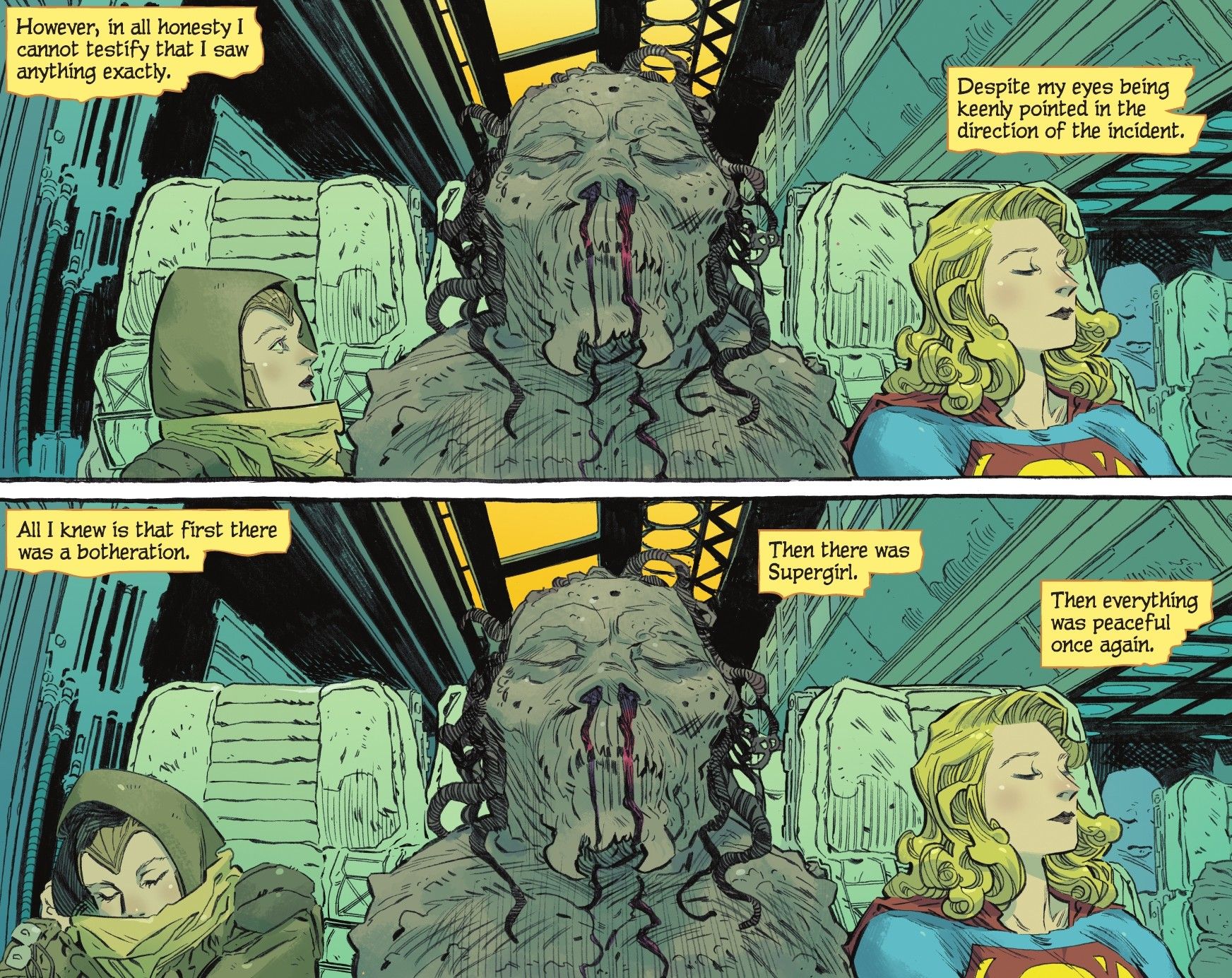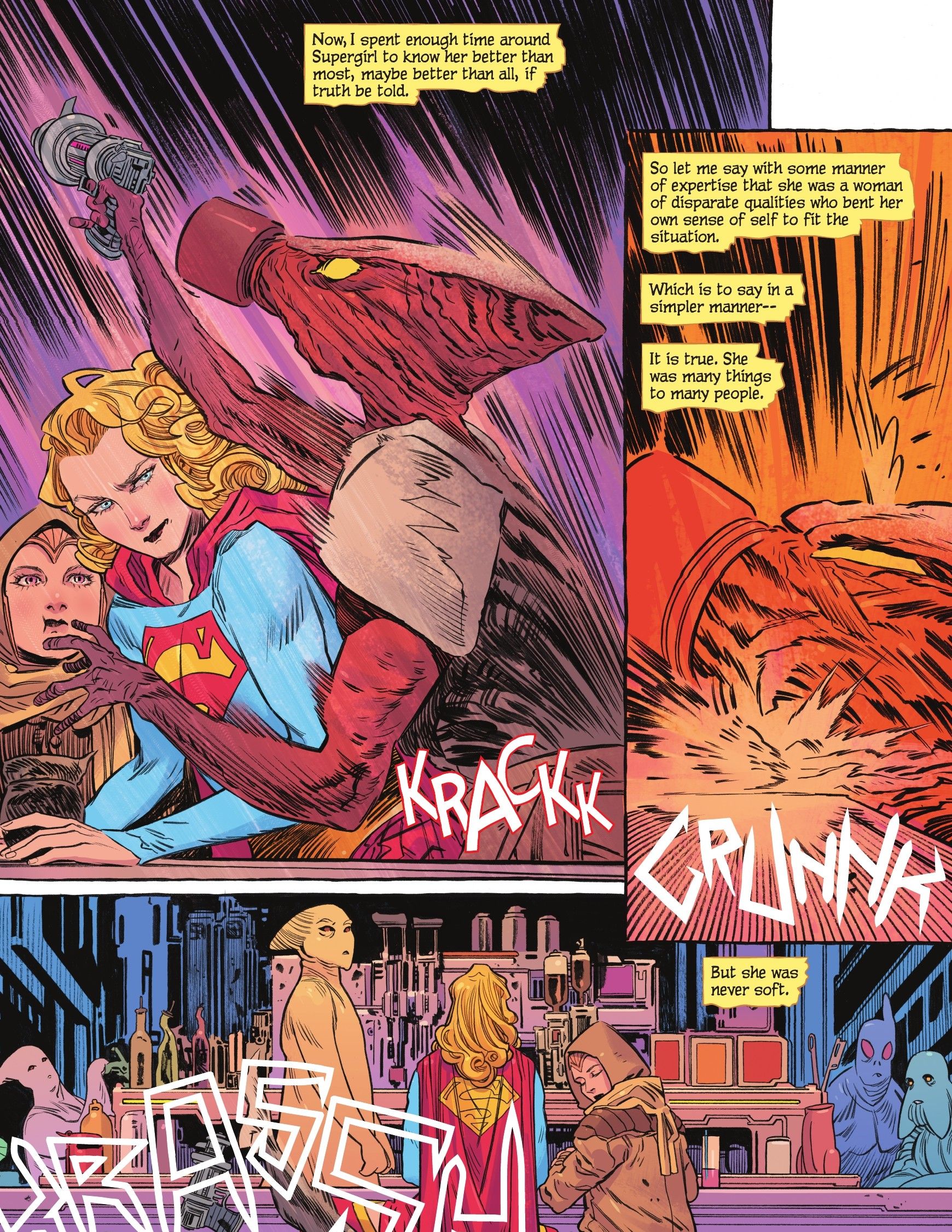Warning: contains spoilers for Supergirl: Woman of Tomorrow #2!
In Supergirl: Woman of Tomorrow #2, DC acknowledges the current comic iteration doesn't have much in common with the CW's Girl of Steel while offering an in-universe explanation that maintains their connection. It's been well documented that DC Rebirth's version of Supergirl was heavily influenced by Melissa Benoist's portrayal. In the comics, Kara Zor-El's Earth parents took the surname Danvers from the show, along with Supergirl being based in National City and her appearance resembling Melissa Benoist. But now the Infinite Frontier era of continuity is here, and Kara isn't so recognizable to fans of the show.
Although there are clear tributes to past iterations - for instance, Supergirl just manifested Linda Danvers' angelic wings from Gary Frank and Peter David's run - writer Tom King is adamant that his and Bilquis Evely's version of Supergirl is intended to get to who she is at her core. In his interview with Screen Rant, Tom King said, "She's changed dramatically in the last 10 years, between coming back to life to the New 52 to Rebirth. ... There's so much there, and I just wanted to take all that stuff off and get to the core of the character; get her out of her normal environments and her normal conflicts." King went on to say that Supergirl deserves to be a pillar of the DC Universe, expressing a desire to return to Otto Binder's original vision by stripping away more recent re-imaginings of the character. But despite this view, King's Supergirl: Woman of Tomorrow still makes an effort to connect different iterations of Kara's personality.
In Supergirl: Woman of Tomorrow #2 by Tom King and Bilquis Evely, Supergirl is described as "a woman of disparate qualities who bent her own sense of self to fit the situation" by Ruthye. It's implied that it's in Kara's nature to adapt to social situations, presenting the persona that will be most welcome while honoring her core principles. This allows King and Evely's Kara to be a more uncompromising figure in the wilds of space without necessarily rejecting Melissa Benoist's depiction. For instance, when Ruthye is threatened while interacting with an alien aboard a space bus, Kara knocks it unconscious with no hesitation. This is something that Melissa Benoist's version of Supergirl would never do, and yet this social chameleon justification makes it clear that under different circumstances, Kara wouldn't be so quick to get physical.
The CW's Supergirl is more contained and less brash in her actions, while the Kara of Supergirl: Woman of Tomorrow is struggling with her role as a hero and acts as more of a cowboy-type loner (fitting, given how the story draws clear inspiration from stories like True Grit.) As with any comic hero, there is no one correct way to understand the Girl of Steel, even as there need to be some core values that define the character beyond just her costume. Kara is an intricate individual, and it's as reasonable to re-imagine her as other comic heroes like Batman and Superman, but it's also necessary for certain qualities to bridge the gap between iterations.
Supergirl: Woman of Tomorrow offers the idea that Kara's ability to be "many things to many people" is core to her character, but it also draws a clear distinction between being able to adjust to different situations and being a people pleaser - Kara fits the situation not because she lacks personality, but because it's part of who she is. There are so many different iterations of Supergirl with differing traits, but King and Evely's viewpoint ultimately strengthens the idea that many versions of Supergirl can be valid while still working as iterations of the same character. Melissa Benoist's Supergirl isn't the type to lash out at an alien assailant, but in the depths of existential crisis, protecting a child in the wilds of space, and chasing a villain who just fatally injured her dog, she'd likely adopt the disposition that allowed her to survive, so long as it didn't compromise her heroic ideals. Ultimately, if King and Evely are hoping to return Supergirl to her roots in a way that has a lasting effect on the character, this is exactly the kind of compromise that's needed to keep fans of other versions onboard, including but not limited to the CW's version.



